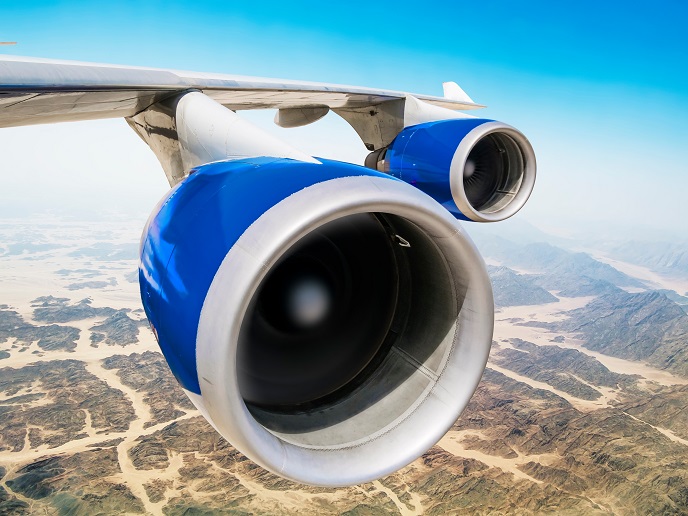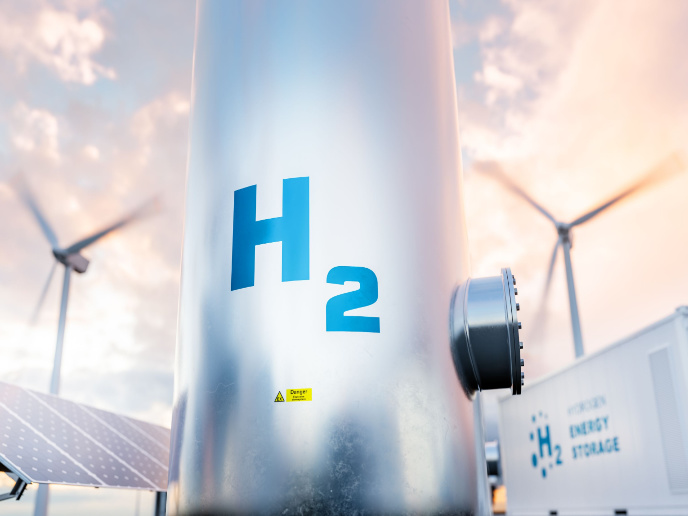Gearing up for more efficient, sustainable engine architectures
The Ultra-High Propulsive Efficiency (UHPE) engine, one of the flagship demonstrators of the Engines Integrated Technology Demonstrator programme of Clean Sky 2, aims to further increase fuel and energy efficiencies and reduce harmful emissions compared with today’s most efficient turbofan engines. It plans to achieve these objectives by increasing the engine propulsive and thermal efficiencies beyond the current state of the art. One approach to improving engine propulsion and thermal performances is to increase the bypass ratio and reduce the fan pressure ratio. In particular, a bypass ratio greater than 15:1 is required to satisfy demanding environmental objectives. However, this introduces technical challenges mainly related to the materials used in the drive system module of the UHPE engine.
The challenge with very high bypass ratio engines
The turbofan’s bypass ratio refers to the ratio between the primary flow (the mass flow rate entering the engine core) and the secondary flow (the mass flow rate flowing past the combustor). The greater the volume of air bypassed, the quieter and more efficient the engine becomes. The geared turbofan design is advantageous for engines with very high bypass ratios. “The Ultra-High Bypass Ratio technology achieved with the geared turbofan concept, which decouples the fan and turbine speeds through an integral drive system, is an innovative architecture enabling significant reduction in fuel burn, noise and emissions,” notes Ida Bartilotta, research engineer at Italy-based company AM Testing and coordinator of the EU-funded HILOGEAR project. “Classical aerospace materials for bearings and gears do not demonstrate all the necessary technical characteristics to fulfil the strength requirements for use in the UHPE power gearbox. To this end, new materials and heat treatments need to be investigated,” adds Bartilotta.
Testing material performance under realistic conditions
With the support of HILOGEAR, AM Testing carried out tests to establish the static and fatigue strength of gears and bearings with respect to classic damage mechanisms, such as bending and scuffing. The experimental activities aimed at assessing the bearing and gear material performances in operating conditions similar to those of new engines (high loads and high temperatures). The test rig for bending and scuffing tests allows reaching 1 MW of circulating power with a maximum speed at the pitch line of 140 m/s. The maximum temperature of lubricant is 180°C, and also tests in extreme conditions can be carried out. Researchers investigated and tested promising steel-based materials surface treatments suitable for gears and bearings. Regarding the bearings, researchers conducted 46 tests (testing hours exceeded 34 000) using two combinations of materials and heat treatment methods. Furthermore, they conducted 228 tests (testing hours exceeded 3 700) on the endurance of gear materials, using five combinations of materials and heat treatment methods.
Heralding a new era in high-performance aircraft engines
HILOGEAR results feed into the core engine technology maturation efforts of the UHPE demonstrator. Furthermore, project results will be leveraged in future studies and research projects. “Through HILOGEAR, AM Testing, a small-medium enterprise, had the opportunity to collaborate with a big company, Schaeffler Aerospace Germany, in the development of high-precision bearing systems and gears for aircraft engines. We also strengthened ties with Italy-based business aviation company Avio Aero, paving the way for collaboration in the future,” concludes Bartilotta.
Keywords
HILOGEAR, gears, bearings, AM Testing, Ultra-High Propulsive Efficiency, geared turbofan, Ultra-High Bypass Ratio, Schaeffler Aerospace Germany, Avio Aero







